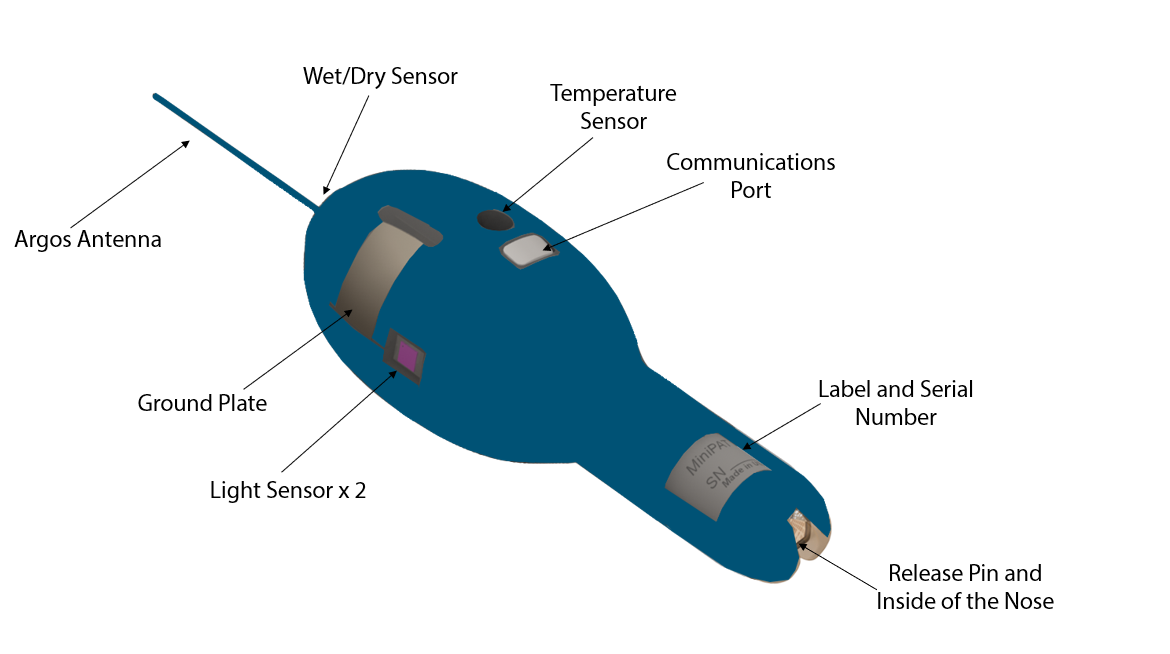Fouling organisms can be hugely detrimental to tagging studies. Especially for deployments in tropical waters, it is imperative that tags be protected against marine growth. Wildlife Computers endorses two anti-fouling paints, Micron and Propspeed. While there are dozens of options available, these are our favorites from years of testing and client feedback.
Micron
Micron is a copper-based, ablative antifouling paint that kills biofouling on contact. Micron is highly effective at providing protection whether animals are moving or not. Unique among antifouling paints, the acrylic copolymer formula of Micron* with Biolux® reacts with saltwater to release biocide. Because the formula relies on a chemical reaction and not water friction, it’s a great choice for slow movers like sea turtles and whale sharks. Micron antifouling paint has been used for decades to limit biofouling on sea turtle satellite tags, however, Micron can be used on all Wildlife Computers tags.
Wildlife Computers offers an optional service to sand, mask, and paint tags with antifouling coatings before shipping for $250 USD per tag. With this service, the pop-up tag body is painted with one primer coat and two coats of Micron CSC while some sensors are coated in Propspeed (which is a clear silicone coating and relies on water movement to remain effective). Wet/dry sensors are also coated with a conductive polymer (C-Spray). For non-buoyant and larger buoyant tags, tag bodies receive primer, three coats of Micron CSC, Prospeed on some sensors, and C-Spray.
*Micron 66 has been discontinued but can still be found in some stores. Wildlife Computers is testing Micron CSC as a replacement. MiniPaT, sPAT, Benthic sPAT, mrPAT, and microPAT pop-up tags will float with one coat of primer and two coats of Micron CSC. SPLASH and SPOT tags on other species such as sea turtles and sharks should be painted with one coat of primer and three coats of any Micron paint. Once antifouling paints and tethers are applied, Wildlife Computers recommends performing a float test.
Below you will find resources on how to paint our different tags.

Micron Application Protocol (PDF)
How to Apply Antifouling to a Pop-up Tag (PDF)
Wildlife Computers Antifouling Video—Watch our resident expert, Kevin Lay, show us how to properly antifoul a turtle tag.
In case you are tagging turtles, check out Kevin Lay tagging a sub-adult green sea turtle – Wildlife Computers Turtle Tagging Video
Propspeed
Propspeed is non-toxic and widely available. Its glossy texture sloughs off marine growth before it has a chance to bond, keeping tag sensors clean and pristine. Constant water flow is key to Propspeed’s effectiveness making it most beneficial for active swimmers like tuna and sharks.
Wildlife Computers offers an optional service to sand, mask, and paint tags with one coat of PropSpeed antifouling paint (no primer) and coat the wet/dry sensors with conductive polymer. This comprehensive antifouling service is offered at a charge of $100 per tag prior to shipping.
Below you will find resources on how to paint our tags.
How to Apply Propspeed to a Tag (PDF)
How to Apply Propspeed to a Tag Video—Learn how to add Propspeed antifouling paint to a MiniPAT tag.
